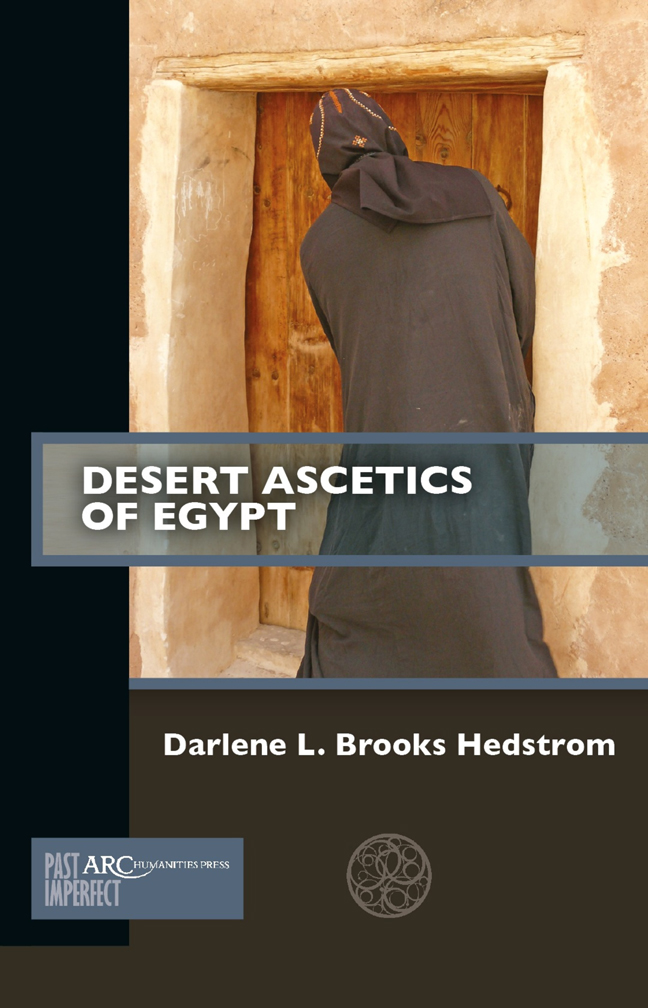Book contents
- Frontmatter
- Contents
- List of Illustrations
- Introduction: Travelling into the Desert
- Chapter 1 Desert Ascetics as Early Christian Celebrities
- Chapter 2 What Did the Desert Ascetics Teach and How Did They Live?
- Chapter 3 Who Was the First Desert Ascetic?
- Chapter 4 Monastic Literature, Letters, and Desert Ascetics
- Chapter 5 Archaeology of Early Egyptian Monasticism
- Chapter 6 Archaeology of Monastic Places
- Chapter 7 Monastic Archaeology and Monastic Things
- Conclusion: Reassembling a History of the Desert Ascetics of Egypt
- Further Reading
Chapter 7 - Monastic Archaeology and Monastic Things
Published online by Cambridge University Press: 20 February 2024
- Frontmatter
- Contents
- List of Illustrations
- Introduction: Travelling into the Desert
- Chapter 1 Desert Ascetics as Early Christian Celebrities
- Chapter 2 What Did the Desert Ascetics Teach and How Did They Live?
- Chapter 3 Who Was the First Desert Ascetic?
- Chapter 4 Monastic Literature, Letters, and Desert Ascetics
- Chapter 5 Archaeology of Early Egyptian Monasticism
- Chapter 6 Archaeology of Monastic Places
- Chapter 7 Monastic Archaeology and Monastic Things
- Conclusion: Reassembling a History of the Desert Ascetics of Egypt
- Further Reading
Summary
The archaeology of smaller, more modest objects of daily life presents opportunities to see into people’s personal lives in the past. One of the challenges of working with smaller items is to find tools for ascertaining the identity of who made or owned portable objects such as combs, rings, clothing, and tools. Artifacts of daily life may reveal an owner’s personal tastes or what was simply available at the time of purchase. In the case of monastic things, excavations in Egypt have provided a wide array of evidence for looking at the realia of late antique desert asceticism. Cooking vessels from a kitchen, woven mats from a workroom, and discarded letters from a monk’s trash all provide unique evidence for exploring how monks lived in late antique Egypt. These material remains of monasticism amplify and contextualize the famous stories of monks from the hagiographical record, providing important context that might be otherwise missed.
The Sayings are often read as accounts primarily describing religious life and Christian theology. Aspects of daily life appear embedded within the ascetic stories but rarely draw the attention of scholars. Three stories recounting the lives of Theodore, Arsenius, and Olympius will illuminate how a material reading of the Sayings enlivens the history of desert monasticism in the fifth and sixth centuries.
Monks and Their Ovens
Theodore lived alone on the desert margins when he first started his ascetic life. He quickly learned that he needed support from other monks and relocated to one of the many monastic houses at Enaton, a monastic community located at the ninth milestone west of Alexandria, along the central road to Cyrene (Theodore of Enaton 1: Give Me a Word, trans. Wortley, 124). By living with others, Theodore believed, he was better able to reach his spiritual goals and foster a more intimate life in continual awareness of God’s presence.
Theodore and other monks baked their own bread at a shared bakery within the community, a common practice also present in nonmonastic villages. The process involved bringing dough to the bakery, kneading it, and then supervising the baking of the bread. One day, Theodore went to the bakery to prepare his two loaves. While there, he met other monks who also needed to bake, one of whom needed immediate assistance.
- Type
- Chapter
- Information
- Desert Ascetics of Egypt , pp. 111 - 122Publisher: Amsterdam University PressPrint publication year: 2023



